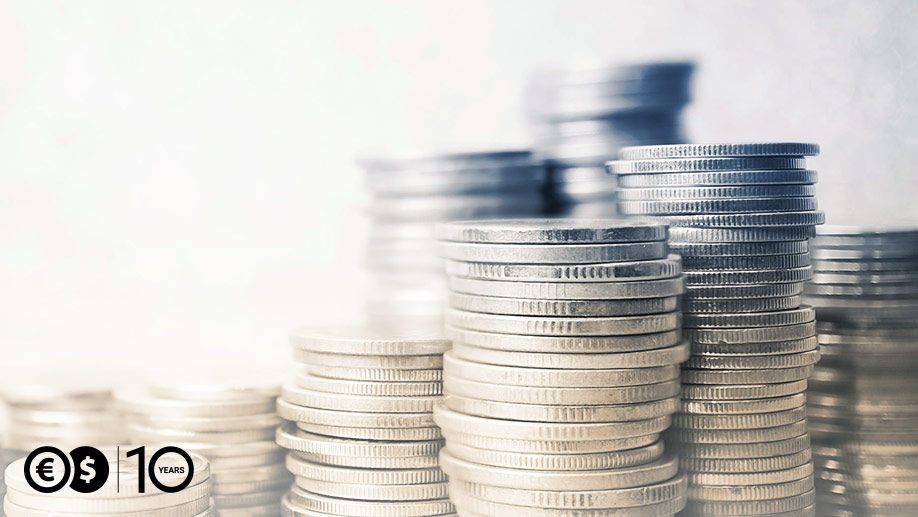When central banks make decisions, they affect the finances of virtually all of us. These institutions create the country's monetary policy. They decide on interest rates and are responsible for issuing money. What else do they do? For everything you need to know about central banks, continue reading.

What is a central bank?
In Poland it is the National Bank of Poland, in the United States the Federal Reserve System - in each country, the names of the central banks are different, but their functions are alike. In a nutshell, the central bank is the head of finance of a country. It is responsible for the country's monetary policy; it brings together the entire banking system and decides on the issue of money. The central bank must conduct its activities in such a way as to help achieve the country's economic goals.
There are two types of central banks in the world. The first of them is an independent institution that implements its monetary policy and sets its own targets. The second is dependent on the state or government.
Key functions of central banks
One of the most important and most frequently mentioned central bank functions is the issuance of money in cash. It is the only state authority empowered for this task. It has the power to decide whether to put additional notes into circulation.
Central banks also serve as the "bank of banks". In fact, the banking system in many countries can be divided into two levels. The first contains all of the operating commercial banks. The second level is the central bank, which is responsible for providing commercial banks with money. The central bank can also determine the reserves that commercial banks have to hold, organise the system of monetary settlements, conduct interbank settlements, etc. It is responsible for the broadly understood stability of commercial banks. It is in charge of the overall strength of the banking system and can supervise payment systems.
The central bank is also the ultimate lender. When commercial banks are in crisis, it provides them with loans to support their operations.
The last main role of the central bank is to manage the state's finances. Thus, it is liable for maintaining the accounts of individual state institutions. It is responsible for handling the state budget and public debt. The central bank can also provide the state with loans in crises - through direct loans or the purchase of treasury securities. However, such actions can lead to inflation, so they are rarely used nowadays.
Central banks - providing stability and control
The functions of central banks do not end there. With the available direct and indirect instruments, they perform tasks aimed at ensuring stabilisation, regulation and control of the state's financial sector.
As mentioned earlier, central banks create, i.a., the monetary policy of a given country. For this purpose, they use available instruments, e.g. to determine interest rates and influence the credit policy of commercial banks. They also regulate the supply of money in circulation.
The central bank is also responsible for shaping the country's currency exchange rate policy and maintaining and managing the country's foreign exchange reserves.
What is more, an important function is the supervision of the banking sector. The control of commercial banks' activities is one of the elements that form the security of a country's banking system.
Some central banks also carry out educational activities, making the public aware of finance and spreading economic knowledge.
Central banks' monetary policy instruments
The central bank's job includes maintaining balance in the economy or stimulating it when necessary. The primary instrument used by this institution is interest rates. Their value defines the amount of money in the economy. By decreasing interest rates, central banks want to increase the amount of cash. Similarly, by increasing interest rates, they aim to make less money in the economy.
The interest rate, so to speak, determines the current price of money in the economy. Therefore, a country's central bank changes interest rates directly to contribute to the terms and conditions that citizens receive when they take out loans from commercial banks. In theory, the lower the rate, the lower the interest rate on the mortgage, although it is important to remember that there are several other fees associated with taking out a loan that are not affected by interest rates.

On the other hand, low interest rates decrease the profitability of, e.g. deposits, while higher ones increase it. As a result, rising interest rates may increase the interest of foreign investors in putting their money in a given country.
Another important instrument used to influence the economy is the reserve requirement rate. Central banks can set the amount of minimum cash reserves that commercial banks must maintain.
This way, the total number of granted credits is determined. The higher the rate of the obligatory reserves is, the more money commercial banks have to keep. The lower the compulsory reserves are, the more money the banks can use for granting loans, among other things. This increases the money supply.
Another interesting tool is open market operations, which involve selling securities to commercial banks or buying securities. This allows the central bank to define the amount of money in the economy and its supply. By ordering the purchase of securities, it introduces more money, which commercial banks can use for loans. By selling securities, the central bank reduces the amount of money in the economy.
Central Bank of Poland
The National Bank of Poland, with its seat in Warsaw, is the central bank in Poland. Its tasks are defined and stipulated in the Constitution of the Republic of Poland, the Act on the National Bank of Poland and the Banking Law.
The tasks and objectives listed in the aforementioned legal acts guarantee the independence of the National Bank of Poland from other state authorities, including the government.
The National Bank of Poland consists of three main organs: the President of the NBP, the Monetary Policy Council and the NBP Board. They are defined by statute. The President is appointed for a 6-year term by the Parliament at the request of the President. The President is the Chairman of the Monetary Policy Council and the Management Board of the NBP.
The President of the NBP may participate in the sessions of the Parliament. Also, he/she is obliged to provide information and possible explanations to the government related to the monetary policy and general activities of the NBP.
The President may hold office for a maximum of two terms. At the same time, while holding office, they can not belong to any political party or represent their interests. They must be apolitical.
The Monetary Policy Council sets the country's monetary policy each year and then implements it. It is responsible for interest rates, uses instruments of open market operations and determines reserve requirements.
The NBP Management Board consists of a minimum of 6 and a maximum of 8 members. Two of them are Vice-Presidents appointed and dismissed by the President upon a motion of the NBP President. The Management Board performs primarily supervisory and evaluative functions. It controls open market operations and assesses monetary circulation in the country. It issues opinions on the functioning of the banking system in Poland. It also prepares and reviews draft resolutions for the Monetary Policy Council.



